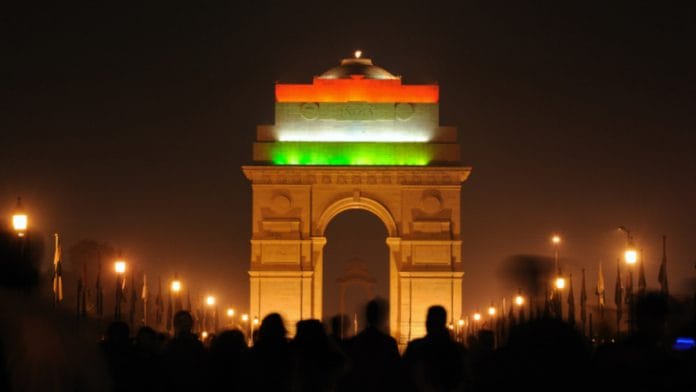Thank you dear subscribers, we are overwhelmed with your response.
Your Turn is a unique section from ThePrint featuring points of view from its subscribers. If you are a subscriber, have a point of view, please send it to us. If not, do subscribe here: https://englishdev.theprint.in/subscribe/
India is the largest democracy in the world. The sheer magnitude of the electoral processes in this federal nation has been a cause of wonder to the world, with elections to some or the other legislature taking place almost throughout the year, so to speak, somewhere in the nation. Probably this is the reason why the nation is also known as a laggard democracy in the economic world. The reason is simple to see, the system of perpetual electoral processes precludes the ability of the governments to implement meaningful policies in time.
Politics reminds me of the quaint little tea shops in Kerala of the 1960s and 70s, where the proletariat met every morning for a hot cup of super tea (best even today) as it is made in a conventional way by mixing black tea from the samovar with milk in a unique way…served in glasses (and a beedi too for some), for exchange of views and opinions on every news item, between opposing political sympathizers, being read out from a (or two) vernacular daily, by the designated person of the day. Every headline of the day was shredded to bits… occasionally among them appears a visitor (Marunadan Malayali—a Malayalee from another state) who brings inside news (mostly fake) from his “connections” just to sensationalise and score brownie points.
These little meetings were over decades leveraged by political parties to their advantage and Kerala got the title as the “most politically aware state”, which position it held until a couple of decades ago. It is the same tattle now – more and some more fake, … the canvas(digital) is larger and artistes many many many more. The theme is the same. The more things change more they remain the same.
One has often wondered whether the campaign “Chai pe Charcha (discussion over tea) adopted by a major political party a decade back was a direct copy from Kerala “tea shops”, though the media of the newspaper was replaced by a combination of satellite, internet and mobile phone technology. Whatever, public relations have emerged as the most important campaigning tool with strategic communications and community engagement becoming the backbone of any electoral propaganda.
The common voter relates the most to the political leader, the messenger, in a campaign and the message. Digital technology, machinery, allows the messenger o transmit the message effectively an effortlessly to a wide range of electorate in a short time. Thus, the messenger, a political leader who leverages maximum recall, and the message have become paramount in reaching out to the grassroots. in any campaign. It is unfortunate that the message is centered around religion, caste, parochialism and not on development and progress. It is always about the past and not about the future. Hence India has become a laggard democracy.
The major problem in India is the process of evolution of the political parties and carrying the process to governance. Political parties in India, without exception, are parochial, clan based, caste based or Dynastic fiefdoms selectively pandering to the needs of some sections of the society. In electoral democracies every political party will attempt to create a strong faithful voter base. During governance, it follows that policies are most often tailored to suit this “voter base”. In such an environment it is difficult to formulate progressive policies.
Next few months in India will be a jamboree of various political parties displaying histrionic and oratory talents displaying historic frailties. Vote bank politics of religion, sectarian, clan, parochialism, dynastic et al will take Centre stage. The adage roti, kapda and makkan will be relegated to freebies, schemes and promises. India will experience a sort of prolonged festive season. The largest democracy in the world will forget that there is a Nation to be governed. The media will vie to broadcast the drama garnering TRPs vying for binge watching its programs exhibiting diversity in diversity. Performance, policies and governance may get m4entions in passing now and then. It is also reported that more than Rs. 1000 crore has been ceased in the poll bound states in November, already. This, in short, sums up the Indian democratic process of electing representatives.
Instead of focusing on development and all inclusive growth, already in our grasp, the powers that be are playing a game of one-up-manship. The pathetic state is revealed when during elections the discourses and discussions are about Dalit votes, Muslim votes, Lingayat votes, Dravida votes, Yadav votes etc., the latest shenanigan being reservations for madigas and Muslims instead of talking of progress and development. Are these not divisive ways to approach the electorate?
Tailpiece: The politics in India has been about vote shares and vote banks and not about progressive ideas and governance. Social harmony, including religious harmony, is the domain of the society. When the government comes in there, it becomes a law and order matter. Democracy actually starts working with governance beyond elections. We miss the woods for the trees.
These pieces are being published as they have been received – they have not been edited/fact-checked by ThePrint.


